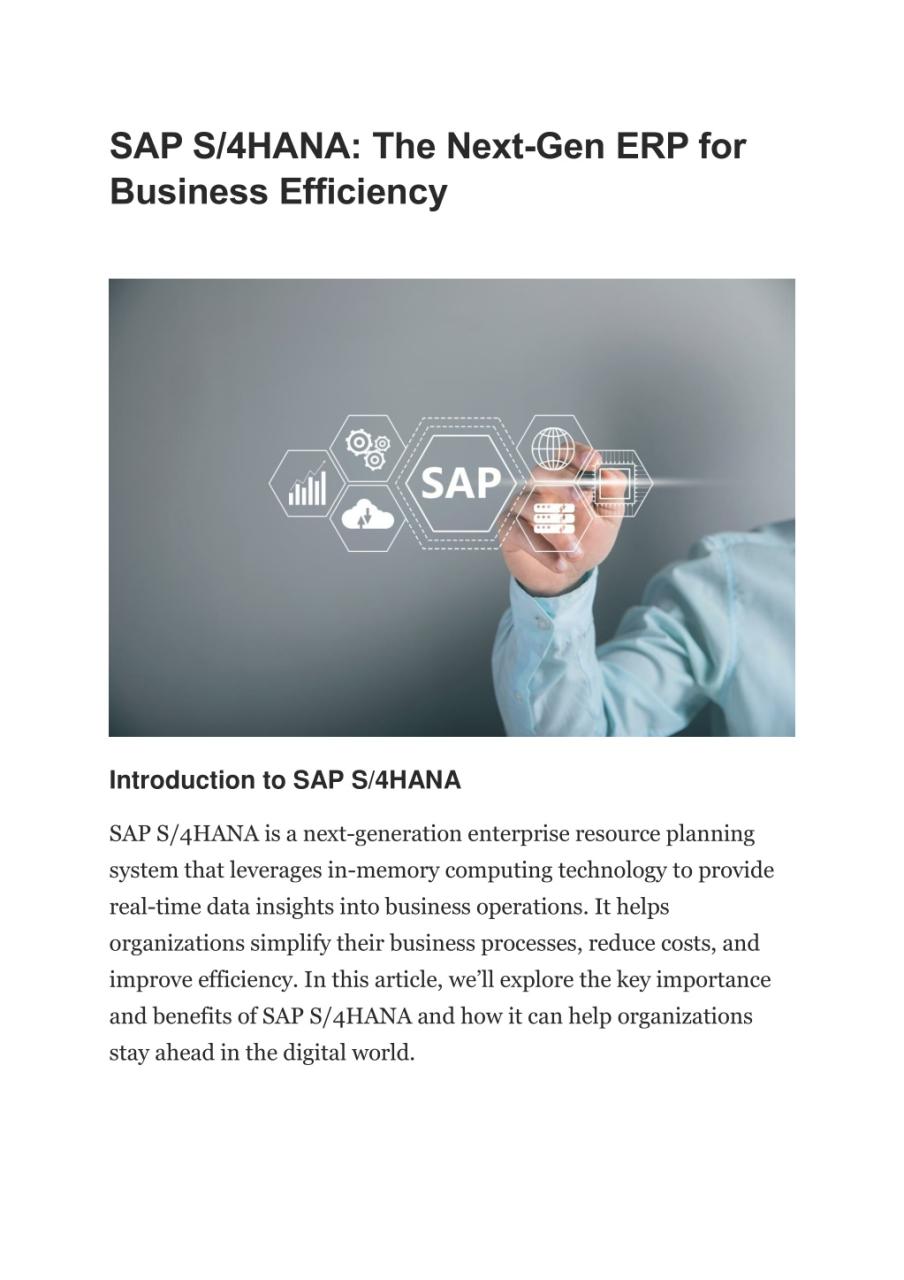Microsoft ERP: A Comprehensive Guide to Streamlining Business Operations
Introduction
In today’s competitive business landscape, organizations seek solutions to optimize their operations, improve efficiency, and gain a competitive edge. Enterprise Resource Planning (ERP) systems have emerged as a powerful tool for businesses looking to achieve these goals. Microsoft ERP, a leading provider in the ERP market, offers a comprehensive suite of solutions designed to empower organizations of all sizes.
What is Microsoft ERP?
Microsoft ERP is a cloud-based ERP system that integrates various business processes into a single, unified platform. It provides a comprehensive range of modules, including:
- Financial Management: Manage financial operations, including accounting, budgeting, and forecasting.
- Supply Chain Management: Optimize inventory management, purchasing, and logistics.
- Customer Relationship Management (CRM): Manage customer interactions, sales, and marketing campaigns.
- Human Capital Management (HCM): Manage employee data, payroll, and benefits.
- Project Management: Plan, track, and manage projects effectively.
 .
.
Benefits of Microsoft ERP
Implementing a Microsoft ERP system offers numerous benefits for businesses, including:
- Improved Efficiency: Streamline business processes, reduce manual tasks, and automate workflows.
- Enhanced Data Management: Centralize and standardize data across the organization, improving data accuracy and accessibility.
- Increased Collaboration: Foster collaboration between departments by providing a shared platform for data and communication.
- Better Decision-Making: Provide real-time insights and analytics to support informed decision-making.
- Reduced Costs: Eliminate redundant systems, reduce manual labor costs, and improve operational efficiency.
 .
.
Disadvantages of Microsoft ERP
While Microsoft ERP offers significant benefits, there are also some potential drawbacks to consider:
- Implementation Costs: Implementing a Microsoft ERP system can be a complex and expensive process.
- Customization Challenges: Microsoft ERP may not be fully customizable to meet the unique needs of all businesses.
- Training Requirements: Employees may require training to use the new system effectively.
- Data Migration Risks: Migrating data from existing systems to Microsoft ERP can be a complex and risky process.
- Vendor Lock-In: Microsoft ERP can create vendor lock-in, limiting the ability to switch to other ERP systems in the future.
Microsoft ERP Solutions
Microsoft ERP offers a range of solutions tailored to the specific needs of different industries and business sizes. These solutions include:
- Microsoft Dynamics 365 Business Central: A cloud-based ERP solution for small and medium-sized businesses.
- Microsoft Dynamics 365 Finance and Operations: A comprehensive ERP solution for midsize and large organizations.
- Microsoft Dynamics 365 Supply Chain Management: A specialized solution for managing supply chain processes.
- Microsoft Dynamics 365 Project Operations: A solution for managing project-based businesses.
- Microsoft Dynamics 365 Human Resources: A solution for managing human capital management processes.
Essential Information About Microsoft ERP
- Deployment Options: Microsoft ERP offers both cloud-based and on-premises deployment options.
- Integration Capabilities: Microsoft ERP can be integrated with other Microsoft products, such as Office 365 and Power BI.
- Pricing: Microsoft ERP pricing varies depending on the solution, deployment option, and number of users.
- Support: Microsoft provides support through its online knowledge base, community forums, and dedicated support teams.
- Industry Expertise: Microsoft ERP has industry-specific solutions for various industries, including manufacturing, retail, and healthcare.
FAQs About Microsoft ERP
-
What is the cost of implementing Microsoft ERP?
- Implementation costs vary depending on the solution, deployment option, and number of users.
-
Can Microsoft ERP be customized?
- Microsoft ERP offers limited customization options, but third-party solutions can be used to extend its functionality.
-
How long does it take to implement Microsoft ERP?
- Implementation timelines vary depending on the complexity of the project, but typically take several months.
-
What is the learning curve for Microsoft ERP?
- The learning curve for Microsoft ERP varies depending on the user’s experience with ERP systems.
-
Does Microsoft ERP integrate with other systems?
- Microsoft ERP can be integrated with other Microsoft products and third-party systems through APIs and connectors.
-
What industries does Microsoft ERP support?
- Microsoft ERP offers industry-specific solutions for various industries, including manufacturing, retail, and healthcare.
-
What is the future of Microsoft ERP?
- Microsoft continues to invest in Microsoft ERP, adding new features and enhancements regularly.
-
How can I evaluate Microsoft ERP for my business?
- Microsoft offers free trials and demos to help businesses evaluate the solution.
-
What are the alternatives to Microsoft ERP?
- Other ERP providers include SAP, Oracle, and Infor.
Conclusion
Microsoft ERP is a powerful tool that can help businesses optimize their operations, improve efficiency, and gain a competitive edge. By understanding the benefits, disadvantages, and essential information about Microsoft ERP, businesses can make an informed decision about whether the solution is right for them. With its comprehensive suite of solutions, industry expertise, and ongoing support, Microsoft ERP empowers organizations to achieve their business goals and thrive in the digital age.
Disclaimer
The information provided in this article is for general informational purposes only and should not be construed as professional advice. Businesses should consult with qualified professionals to assess their specific ERP needs and determine the best solution for their organization.
 .
.

